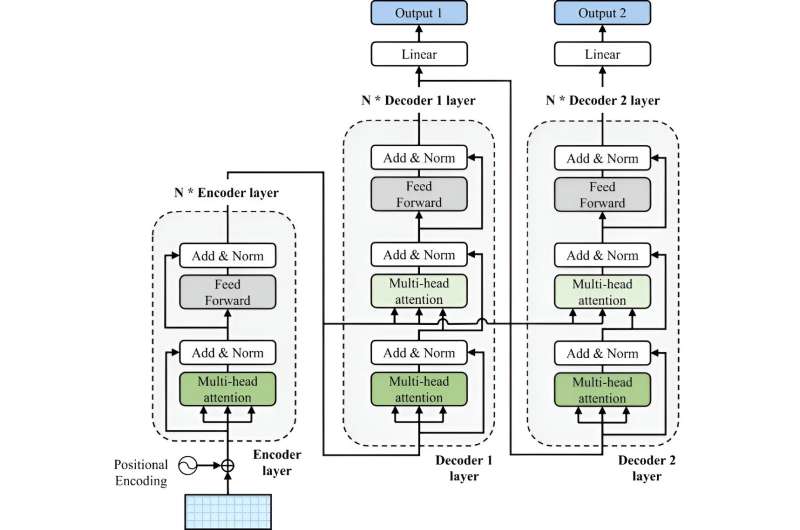
Heating, ventilation, and air conditioning (HVAC) systems, a critical component of building energy consumption, are prone to faults that can reduce their efficiency. Traditional data-driven fault detection and diagnosis (FDD) models often suffer from limited generalizability, making their application across diverse systems challenging.
A study published in Energy Storage and Saving by researchers from Xi’an Jiaotong University introduces a novel approach to FDD in HVAC systems. This research leverages a modified transformer model and adapter-based transfer learning to enhance the generalizability of FDD models across various HVAC systems.
The team developed a transformer model enhanced with an encoder and two decoders, enabling simultaneous identification of multiple fault types and severities. This innovation is complemented by an adapter-based transfer learning strategy, allowing the model to adapt efficiently across various HVAC systems, even with limited data.
Two designed transfer learning scenarios demonstrate the effectiveness of the proposed HVAC FDD transfer learning framework, compared with the popular fine-tuning method.
By integrating an efficient transfer learning technique, the model can be seamlessly transferred from one comprehensive dataset to another with less available data. This approach significantly enhances the model’s versatility, facilitating its application to different systems without the need for extensive retraining or data collection.
Dong Li, a contributing researcher to the study, states, “Leveraging the power of transformer and adapter-based transfer learning, this study not only propels us closer to achieving energy savings in buildings, but also enhances the safe and reliability of HVAC operations.”
This research represents a significant step in HVAC system maintenance, introducing a highly adaptable fault detection method that ensures systems operate at peak efficiency with reduced energy consumption.
By leveraging advanced transfer learning techniques, it offers a scalable solution that can be applied across various HVAC systems, promising widespread benefits in energy savings and system reliability.
More information:
Zi-Cheng Wang et al, A modified transformer and adapter-based transfer learning for fault detection and diagnosis in HVAC systems, Energy Storage and Saving (2024). DOI: 10.1016/j.enss.2024.02.004
Chinese Academy of Sciences
Citation:
Building energy efficiency: Enhancing HVAC fault detection with transformer and transfer learning (2024, March 28)
retrieved 28 March 2024
from https://techxplore.com/news/2024-03-energy-efficiency-hvac-fault.html
This document is subject to copyright. Apart from any fair dealing for the purpose of private study or research, no
part may be reproduced without the written permission. The content is provided for information purposes only.










